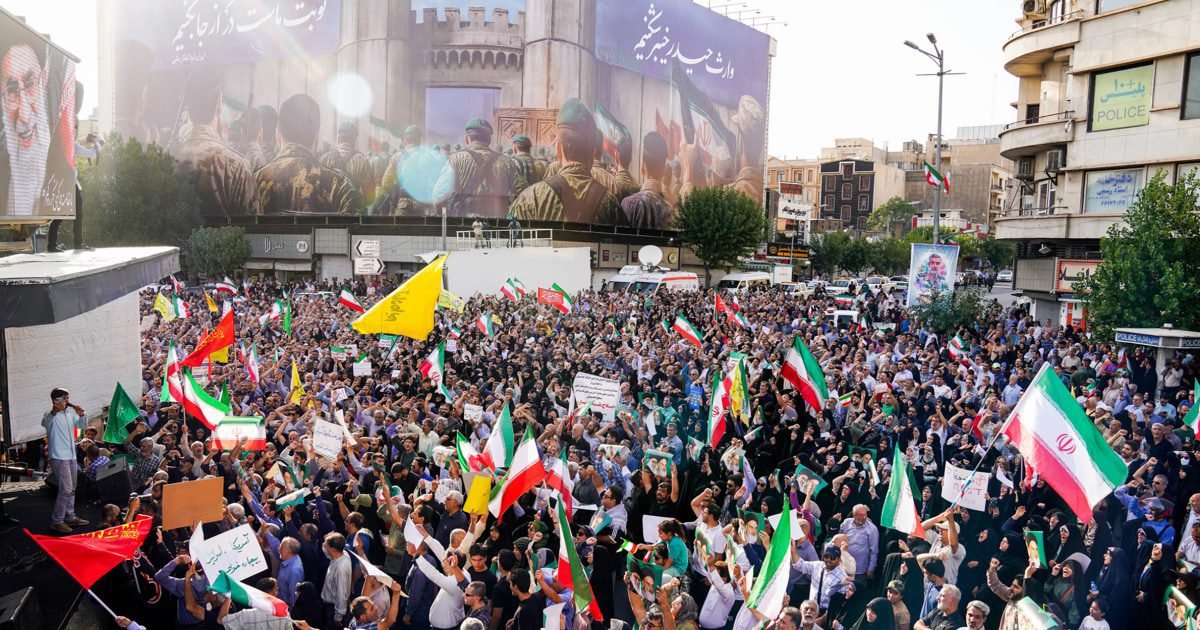Fears that the Iranian regime could be using the recent conflict with Israel to crack down on its own population grew Wednesday after three people were executed and hundreds more were arrested and accused of spying.
Accused of espionage for Israel’s Mossad spy agency, the three people put to death Wednesday allegedly brought “assassination equipment” disguised as shipments of alcoholic beverages and used in the assassination of a public figure into the country, according to Tasnim, a semiofficial outlet affiliated with Iran’s Islamic Revolutionary Guard Corps.
A separate report from the state-aligned Fars News Agency Wednesday also said that more than 700 people it described as “Israeli mercenaries” had been arrested over the last 12 days.
Both reports came after a day of relative calm between Israel and Iran after President Donald Trump demanded they cease hostilities, which began with Israeli strikes on Iranian nuclear facilities and other targets June 13.
“This crackdown was inevitable,” Sanam Vakil, director of the Middle East and North Africa Programme at the London-based Chatham House think tank, told NBC News on Wednesday.
“I think it’s going to be quite extensive and quite prolonged,” she said, adding that they were “a relatively predictable outcome” for a regime that “remains heavily repressive.”
Having been locked into a decadeslong simmering conflict with Israel before the recent war, Iran has long been known to put people to death over allegations of spying for Mossad.
Suspicions of infiltration are not without basis, after several Israeli media outlets published footage released by the spy agency that appeared to show covert agents launching missiles from within Iran during the recent attacks. NBC News could not independently verify this footage.
The head of Iran’s judiciary, Gholam-Hossein Mohseni-Ejei, also called on Saturday for cases of alleged collaborators with Israel to be expedited so they could face sentencing “as quickly as possible,” according to to Iranian state media outlet ISNA.
But rights groups including Amnesty International have sounded the alarm over the latest round of executions and arrests, warning that there could be more sweeping arrests and executions without any evidence of wrongdoing provided by the regime.
Those concerns were echoed by Kenneth Roth, the former executive director of Human Rights Watch, who said that while Israel’s early attacks on Iran had suggested local collaborators, “there is deep reason for concern that people will be accused, convicted, and sentenced for helping Israel on the basis of flimsy if any evidence,” given the country’s “notorious lack of due process.”
The Iranian Embassy in London did not immediately respond to a request for comment from NBC News.
Rights groups have also warned that near-total internet blackouts across Iran can also be used as a tool of repression, blocking the population from sharing information with the outside world.
The Iranian Communications Ministry said this was enforced to prevent Israeli cyberattacks, although the government had in the past shut down or reduced internet access in times of civil unrest.
The crackdown could be “used as a pretext to pre-empt any signs of dissent or public protest against Iranian government and military officials for their failure to protect civilians and key infrastructure from being targeted,” according to Burcu Ozcelik, a senior research fellow for Middle East security at the Royal United Services Institute, a London-based think tank.
She added that the “manhunt” for spies would also “likely deflect attention away from the higher level officials in Iran who may be responsible for Israel’s successful intelligence penetration inside Iran.”
After several senior military leaders and nuclear scientists were killed by Israel, talk of “regime change” by Trump and Israeli Prime Minister Benjamin Netanyahu will likely have fueled paranoia within the Iranian leadership, although the president has since said he doesn’t “want it.”
Netanyahu’s comments shortly after he ordered the strikes that the Iranian public should use the attacks as an “opportunity to stand up and let your voices be heard,” were “felt misguided,” Vakil of Chatham House said.
Under aerial bombardment, “most people shelter in place,” rather than attempting “to bring down an institutionalized bureaucratized and repressive system of government,” she said.
But, she added, it was unclear what lies ahead for a population living under a regime likely to “harden and consolidate.”


